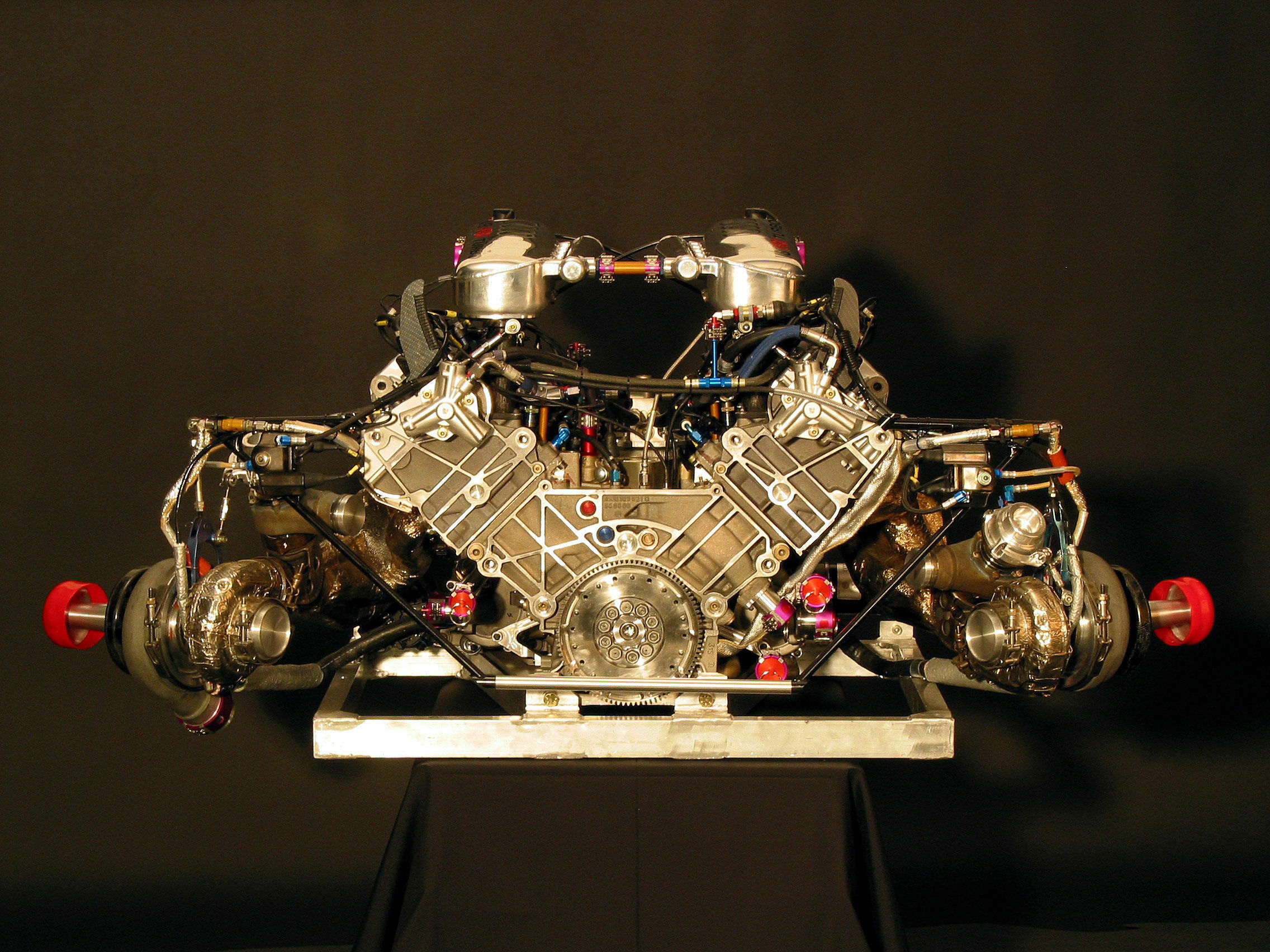Advantage through FSI Technology
Double victory at the Le Mans 24 Hour race, success at the long-distance classics “Petit Le Mans“ and Sebring, a total of eight wins in the American Le Mans Series (ALMS) and a commanding defence of the ALMS title: In 2001 Audi added an important new chapter to its successful motorsport history.
In doing this, Audi again impressively underlined their slogan “Vorsprung durch Technik“. With the direct petrol injection (FSI) a new engine technology was introduced at Le Mans and in the ALMS. Ulrich Baretzky, Head of Engine Technology at Audi Sport, is convinced: “Thanks to FSI technology a new era has begun in engine construction.“
The FSI engine has three decisive advantages over its predecessor with a conventional induction manifold injection system: Lower fuel consumption, an increase in performance over the rev band which is important for racing, and a considerably better throttle response.
Dr Wolfgang Ullrich, Head of Audi Sport, condenses the objectives, which came true with the FSI racing unit by Audi motor engineers: “Reduced fuel consumption, more power, better driveability.“
Thanks to the precise dosing of fuel, the actually required amount of petrol is perfectly used. This is one of the reasons why the Infineon Audi R8 in Le Mans now manages on average at least one lap more per tank than previously.
As the air restrictors are mandatory, the top performance of around 610 bhp remained unchanged compared to the conventional engine. At lower revs the V8 twin-turbo of the Infineon Audi R8 increased its output by up to ten percent. The FSI engine offers a better combination of fuel and air, with the mixture forced into a more intense cylindrical movement by a special intake geometry.
In a conventional engine the intake air and fuel mix in a solid ratio in the intake tract, before the mixture reaches the cylinder. In contrast, in an FSI engine, the exactly required amount of fuel is directly injected into the combustion chamber applying pressures of around 100 bars – up to twenty times higher than in a conventional configuration.
Due to the extreme rainfall at the French endurance classic this year, the improved driveability of the FSI engine was the key to success. “The engine responds like a normally aspirated engine, this makes the car much easier to control on the wet surface“, enthuses Emanuele Pirro, double Le Mans winner and the newly-crowned ALMS champion.
The decision in March 2001 to run with the FSI technology in Le Mans proved to be an important milestone for success: “The advantages are greater than we initially expected, and because we are in the early stages of development, the engine still has potential,“ explains Dr Ullrich.
Audi customers will soon profit from the experience gathered on the race tracks. The first standard Audi engine with FSI technology has already been presented at the Frankfurt Motorshow (IAA). Two engine types with FSI technology will be introduced in the standard production next year. “We are convinced of the success of direct injection,“ explains Wolfgang Hatz, Executive Director of Powertrain Development at AUDI AG. “The progress in comparable with the introduction of the TDI technology for diesel engines.“ Audi engineers paved the way in this field as well.
In fact, the advantages of FSI technology can even be better utilised in everyday driving than on the race track. The consumption advantage in road cars lies at up to 15 percent, as the standard engine often runs at partial load and stratified charge, whilst racing units mostly work at full load with a typical homogenous mixture.
Technology transfer between motorsport and standard development at Audi is very intensive, as both belong to the technical development department of AUDI AG. Moreover, because endurance racing engines are very similar in their characteristics to standard motors, the exchange of experience and knowledge concerning the FSI technology would work well. “Unlike in Formula One the rev range of the racing engine is similar to production units“, explains Head of Audi Sport, Dr Wolfgang Ullrich. “Optimal performance characteristics, low fuel consumption, and high reliability are as important at Le Mans as in standard production.“
For Audi on the race track and in everyday motoring this means: Advantage through FSI technology.
